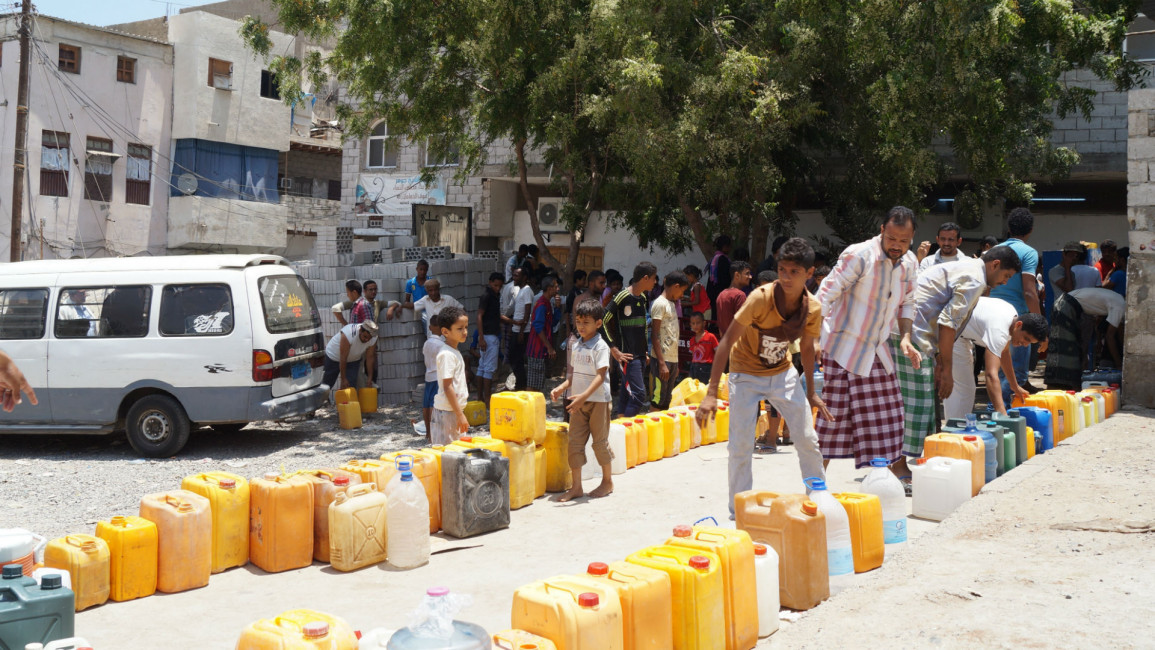War leaves Yemenis in desperate need of clean water
16 million Yemenis are in dire need of access to clean water, aid agency Oxfam said on Tuesday, two months after a Saudi-led air campaign intervened in the country's internal civil war.
“Ongoing airstrikes, ground fighting and fuel shortages mean that an additional three million Yemenis are now without drinking water, raising the total number of Yemenis without a clean water supply and sanitation to at least 16 million,” the UK-based organisation said.
“This is equivalent to the populations of Berlin, London, Paris and Rome combined,” Oxfam's Yemen director Grace Ommer said, highlighting the scale of the crisis in the country, which has an estimated population of 26 million.
The humanitarian crisis predates the latest outbreak of conflict in the country, but the war has exacerbated the situation.
The Houthi movement allied itself to Yemeni armed forces loyal to former president Ali Abdullah Saleh, before taking the capital Sanaa in September of last year, and then deposing the government in February.
Houthi-Saleh forces advanced across the country from their north-western bases, forcing President Abd-Rabbo Mansour Hadi to flee to Saudi Arabia, before a Saudi-led coalition began airstriks on Houthi-Saleh forces on March 26.
The fighting has not abated since the airstrike campaign began, and the Houthis, along with their allies, have continued to make gains on the ground.
The Houthi-Saleh forces did face a setback, when they lost the southern city of Dhale to local resistance forces, some of whom are allied to Hadi, but are largely secessionists, fighting under the flag of the former South Yemen.
Officials and witnesses told Associated Press on Tuesday that the fighters also captured the command centre of the 33rd Armoured Brigade, representing the first major setback for the Houthi-Saleh forces.
The brigade, which is loyal to Saleh, controlled the city, and is one of the country's largest army units. Despite being ousted in 2011, Saleh retained the loyalty of several of the country's most powerful army units, and has used this to his advantage in the power struggle that has ensued in the years since his departure from the office of president.


![Widespread famine is imminent in Gaza [Getty Images]](/sites/default/files/styles/image_330x185/public/2024-03/GettyImages-2015647000.jpg?h=199d8c1f&itok=mJWWP_Td)
